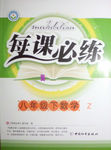题目内容
完形填空
阅读下面短文,掌握其大意,从每题所给的A、B、C、D四个选项中,选出最佳选项,并在答题卡上将该项涂黑。
Once upon a time there were two brothers who lived near each other. One day, they had a ________ because of some small things. And neither was willing to________ each other.
One morning, there was a knock at door of the elder brother. He ________ it and found a man standing beside the door. “I’m a carpenter(木匠). I’m ________ a few days’ work. Perhaps you would have a few small jobs I could help with.”
“Yes,” said the elder brother. “I do have a job for you. ________ at that farm across the small river. It is my younger brother’s. We had a quarrel, so I won’t like to see his ________ anymore. I want you to build me a 8-foot ________ .” The man said, “I think I understand the situation. Don’t worry. I’ll be able to do a job that makes you ________ .” So the elder brother was very glad and left for the town nearby.
In the evening, the carpenter had just ________ his job when the elder brother returned. But he was ________ to find, instead of a fence, before him, stood a ________ , which went from one side of the river ________ the other! On the other________ of bridge, was his younger brother.
“Do you know the name of the bridge?” The carpenter asked.
“No,” the elder brother was________ .
“OK, I can tell you. Its name is understanding and ________ ,” the carpenter smiled.
Suddenly they began to understand ________ . Surely, between two brothers there should be a bridge rather than a________ . Standing on the bridge, they ________ each other’s hands with ________ in their eyes.
“Could you stay another few days? I’ve a lot of other work for you,” said the elder brother. “I’d love to________ on,” the carpenter said. “But I have many more bridges to build.”
1.A. meeting B. question C. decision D. quarrel
2.A. forgive B. like C. speak D. think
3.A. got B. opened C. shut D. left
4.A. looking for B. looking at C. looking on D. looking up
5.A. See B. Watch C. Observe D. Look
6.A. river B. face C. farm D. eyes
7.A. wall B. bridge C. road D. fence
8.A. excited B. pleased C. moved D. surprised
9.A. begun B. done C. finished D. continued
10.A. surprised B. happy C. anxious D. sad
11.A. house B. fence C. bridge D. river
12.A. till B. between C. across D. to
13.A. field B. side C. end D. stage
14.A. disappointed B. puzzled C. amazed D. worried
15.A. love B. hate C. joy D. anger
16.A. everything B. nothing C. anything D. something
17.A. river B. fence C. farm D. wall
18.A. brought B. took C. held D. clapped
19.A. smiles B. sadness C. anger D. tears
20.A. leave B. get C. stay D. work
 每课必练系列答案
每课必练系列答案
